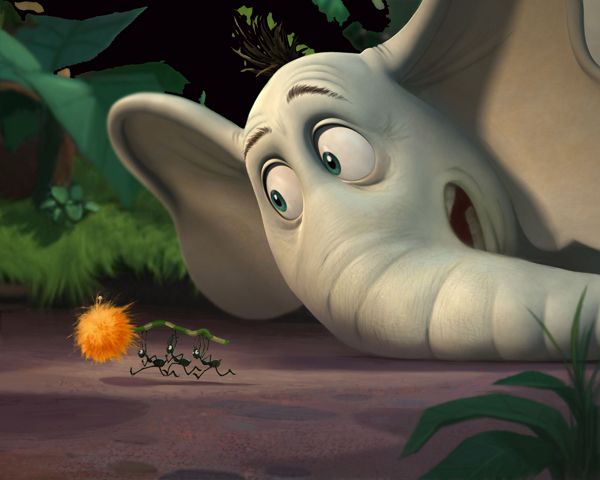
Thursday, April 29, 2010
Horton Hears a Who and Politics in America

Walker State of Play Blog

In State of Play, we see the relationship between government and the influence the media has on the public's perception of politics. The amount of coverage given to certain issues and the amount of slant put on the issues affects the public's exposure to, and knowledge of such issues. The media is the public link to the government, and greatly effects public perception of current events. In the scene where Sophia’s death as a suicide is being headlined, it is clear that there aren’t hard facts behind that assertion. This shows that the press can choose what information to describe and what to ignore. That's not to say the media is always purposefully biased and deceitful, but it is a sobering thought that facts could easily be skewed by the media for political gain. It is our duty as American citizens to not just take the news at face value but to use varying sources of information in order for us to form our own opinion based on facts and not on biases fed to us by the mainstream media.
Gentner State of Play REVISED

Without the press, we would be unable to see both the good works and failings of politicians running for office. The press has the ability to allow us to make an educated decision regarding whom we want in our political offices. The press, though, easily abuses this power. The press has the ability to slant stories in order to fit what they desire to write about and what they think will sell. A sex scandal, for instance, will get much more publicity than a good deed performed by a politician because it is more interesting to read about. This is one of the large downfalls of press for our government. On the other hand, if the newspaper were to use the paper for good, it has the power to transform our society into active members of government, keeping us informed as to what is going on in the world and our country without bias.
The film allows us to see this delicate relationship between the press and politicians first hand. For example, take the scene between Cal and the Congressman towards the end of the film. Cal basically threatens the Congressman into cooperating with him. Although the Congressman does not cooperate, this dialogue shows the power that the press has over politicians – REPUTATION. The press can so easily destroy a person’s reputation, and similarly, it can easily create a hero out of someone. We are able to see, then, the problem with both free press and government: everyone is working in their own self interest.
Tricamo-Palmer-State of Play
Tricamo-Palmer-Horton
Duhe's Horton Hears a Who

Horton hears a who was one of the best animated films I have seen in a good while. The not so subtle undertones of this film serves the purpose of reinforcing the rather serious concepts the film is based on. A large focus of the political message of this film is one of the "Big Brother" crisis being pointed out around our country. At what point does the opinion of the leaders surpass the opinions of the individual. If we believe something to be a truth (i.e Marijuana should be legal) then why does the opinions of our leaders preside over the opinions of the citizen? It doesn't and that that is the message this movie sends across. We should always question those that lead and order us and always fight for what we believe to be right regardless of authority. The themes and undertones were very complex and refreshing in the this film and I enjoyed it thoroughly.